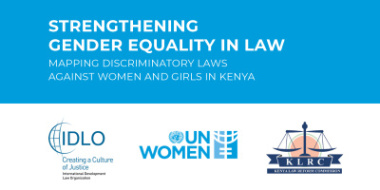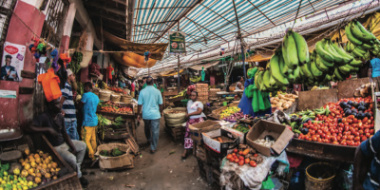While the new Constitution of Kenya, 2010 provides for the right of every Kenyan to access justice, its implementation is vital to strengthen and support the changes required for a better Kenya. IDLO is supporting the Kenyan Government to implement the Constitution in an effective, efficient and sustainable manner, in accordance with international standards and best practices. This is being done with a view to enhancing access to justice for Kenyans, especially for women, children and other vulnerable populations.















